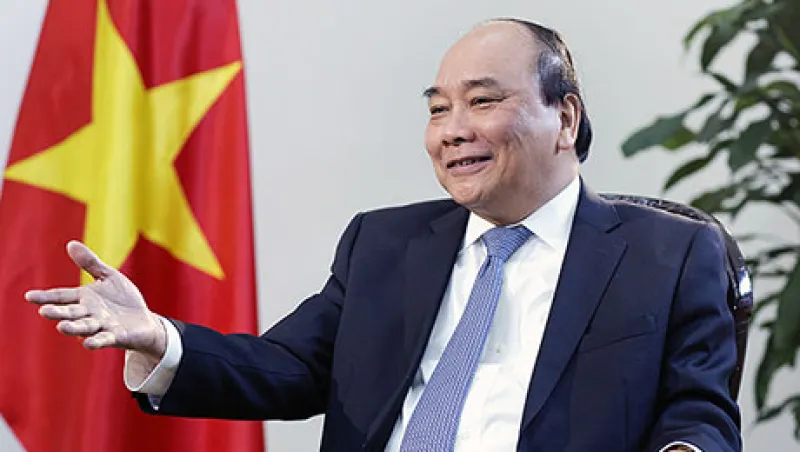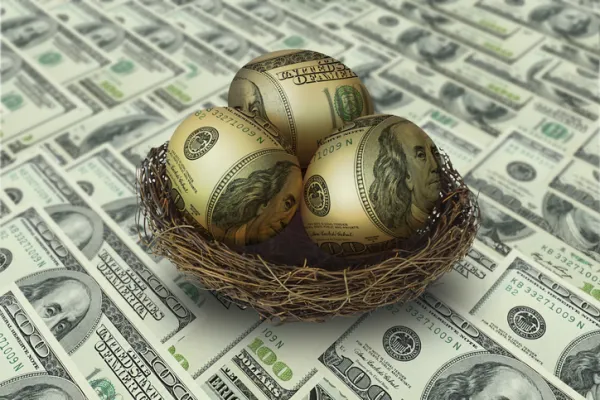Emerging-markets equities kicked off the year with a bang: As of Tuesday’s close, the MSCI Emerging Markets index had gained 5.5 percent overall — a record for the month of January and the highest level since last March. Going into this year, many market observers were worried that President Donald Trump’s protectionist rhetoric would limit emerging markets, which have already had a rough few months, but early indications suggest that’s not going to be the case.
The question now is, Where to invest? Brazil and Russia have rebounded significantly, and now fund managers and investors are starting to look past the bigger emerging economies. Beyond the BRICs (Brazil, Russia, India, and China), Vietnam has a small but mighty economy that is fast becoming an investing hot spot.
Earlier in January, Vietnamese Prime Minister Nguyen Xuan Phuc said in an interview with Bloomberg Television that he wanted to make Vietnam one of the top four investor-friendly economies in the Southeast Asia region. His comments followed an earlier statement that he would be opening more of the country’s industry to foreign direct investment. The statements were quickly hailed by those who have been eyeing Vietnam’s positive demographics and growing economy, looking for a way in.
Vietnam’s GDP grew by 6.2 percent in 2016, according to the General Statistics Office of Vietnam. That number was well within expected forecasts, and the pace of growth is largely expected to continue. But despite such robust growth, foreign investing in Vietnam has historically been difficult. The government limits how much outside money can be part of any one company, and the stock market is still relatively undeveloped compared with other countries in the region. Foreign direct investment could add liquidity and depth to the stock market and local enterprise, but only recently has the government indicated that it would be willing to let outside money come in.
In September of last year, markets got the test case they were hoping for. Vietnam Dairy Products Corp. — or Vinamilk, as it is known locally — became a core part of the MSCI Vietnam index. The company now represents more than half of the benchmark for Vietnam’s stock market, and its success led to a flurry of IPOs listing on the Ho Chi Minh Stock Index, Vietnam’s stock market. Vinamilk and these IPOs added some $13 billion to Vietnam’s market cap in just a few months. In December, the government went further on liberalization, inviting foreign banks to bid for its stakes in Saigon Beer Alcohol Beverage Corp., or Sabeco, a $6 billion market-cap company and a well-known brand in Vietnam.
“We are very bullish on the overall case for Vietnam,” says Adam Choppin, analyst at Philadelphia-based FIS Group, a $5 billion investment firm. FIS Group released a research note on Wednesday highlighting Vietnam as one of its key emerging Asia economies.
“In our conversations with boutique managers that trade emerging markets, many of them are making material changes to the structure of their businesses in order to invest more in Vietnam, now that liberalization is taking place,” he says.
Those material changes including hiring local Vietnamese analysts and altering fund mandates to allow for greater investment into the country. “Rarely have I seen such a unified view on one country,” he adds. “Vietnam is widely considered to be the next Thailand.”
FIS Group typically works with boutique managers to further its investments in listed equities throughout emerging and frontier markets. According to Choppin, he has been surprised to see how significant the interest is in the country, given that Vietnam still has many of the problems of other, more developed economies, including governance concerns and corruption. “I think investors who look closely at Vietnam can see that China, Russia, Brazil — many emerging economies — have the same concerns, and the investment opportunities are still strong.”
Aaron Batten, country economist at the Asian Development Bank’s Vietnam resident mission, agrees. In an interview, he said that the government has made a significant effort to attract investment and also to clean up lingering issues with its banking and financial system.
Vietnamese banks have historically been plagued with nonperforming loans to state-owned enterprises as well as other credit excesses. But the State Bank of Vietnam is now working to implement Basel II standards. The Prime Minister has also said he would be willing to sell off government-owned failing banks entirely, including to foreign buyers.
If that comes to pass, Japan, an important strategic partner for Vietnam, could play a leading role. Japan is already the second-largest foreign direct investor in the country, but additional funds could accelerate improvements to Vietnam’s financial system and move the country forward in its quest to be a regional hub for the global supply chain.
“Vietnam’s lending practices and underdeveloped stock market have led to problems before, but I think the country has largely learned the lessons of the past. It will take time and continued governance improvements to fully develop, but Vietnam is fundamentally trying to create an open investment environment,” Batten said.
Both Batten and FIS Group’s Choppin add that investments in Vietnam through foreign private equity funds and foreign banks have also ratcheted up in the past few years, with the country acting as an important diversifier to pan-Asian funds and portfolio exposures. “On a relative basis, Vietnam looks strong compared to both emerging Asia and other frontier markets in general,” Choppin says. “We think it’s an area investors should consider.”






